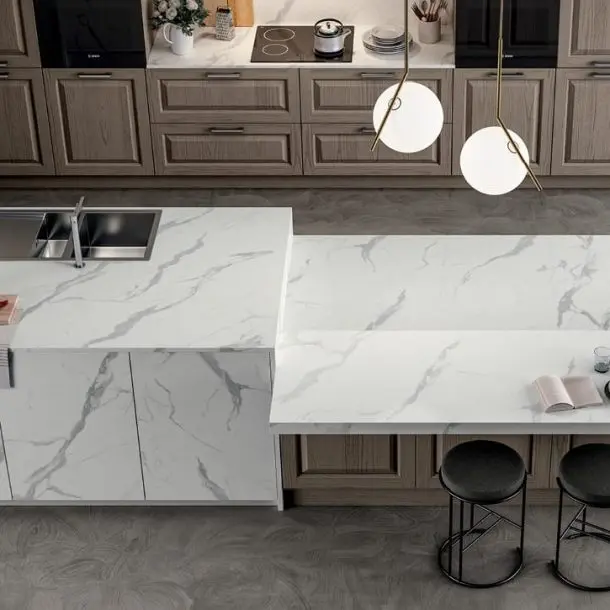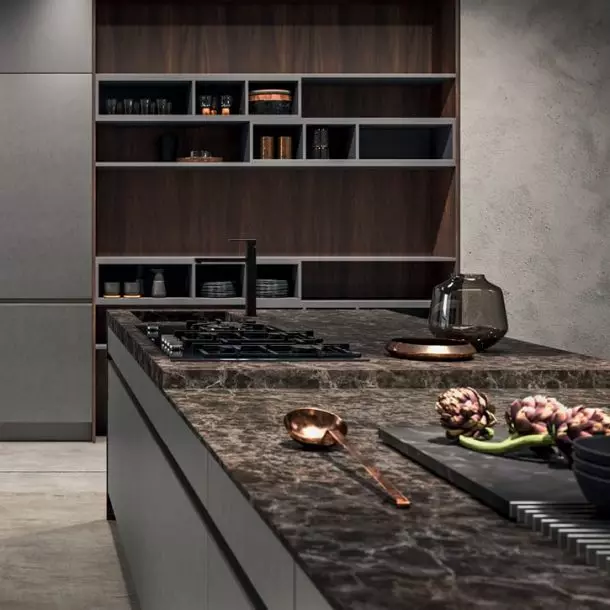
QUARTZ WORKTOPS FOR THE KITCHEN: A STYLISH, PRACTICAL CHOICE
Resistant to knocks and scratches, available in a range of colours, quartz worktops for the kitchen are an attractive, practical choice. Let’s take a look at the pros and cons.
QUARTZ SLABS. WHAT ARE THEY?
Quartz is quickly becoming one of the most popular materials for kitchen worktops.The quartz slabs used for kitchen worktops are produced artificially with up to 95% natural materials such as quartz used as the base for the composition, together with other minerals. To these are added binding resins and pigments with which to achieve an infinite range of colours and effects.
The higher the quantity of natural quartz in the composition, the higher the quality of the kitchen worktop. The more economical solutions use a high percentage of sand, which does not perform as well as quartz, as it is more porous and less resistant to knocks.
Over the years studies into different compositions for quartz slabs have constantly evolved, with some producers patenting products that raise standards to a higher grade. These include Okite®, a 100% Italian company that produces an eco-sustainable quartz, five times more resistant than granite and available on the full range of Gentili Cucine products.
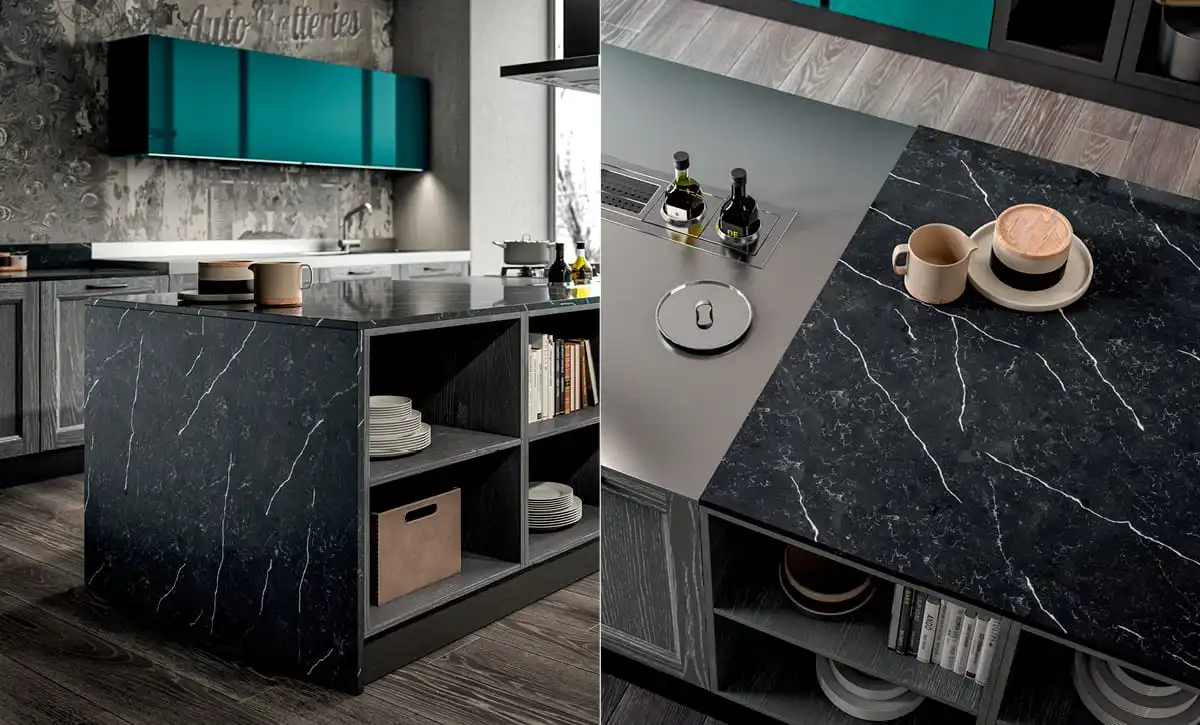
MARBLE OR QUARTZ? THE DIFFERENCES
As it is a natural material, a marble kitchen worktop will always be unique and give exclusive personality to the entire kitchen.
However wide the choice of colours and finishes for quartz slabs, a marble worktop will undoubtedly have greater aesthetic appeal than a manufactured composite material. However, from a practical, functional point of view, quartz has more advantages. Marble is more expensive, more difficult to cut to size and fit and because it is porous it tends to absorb liquids. In spite of its natural hardness it can easily crack or be scored by knocks and it scratches and scuffs easily.
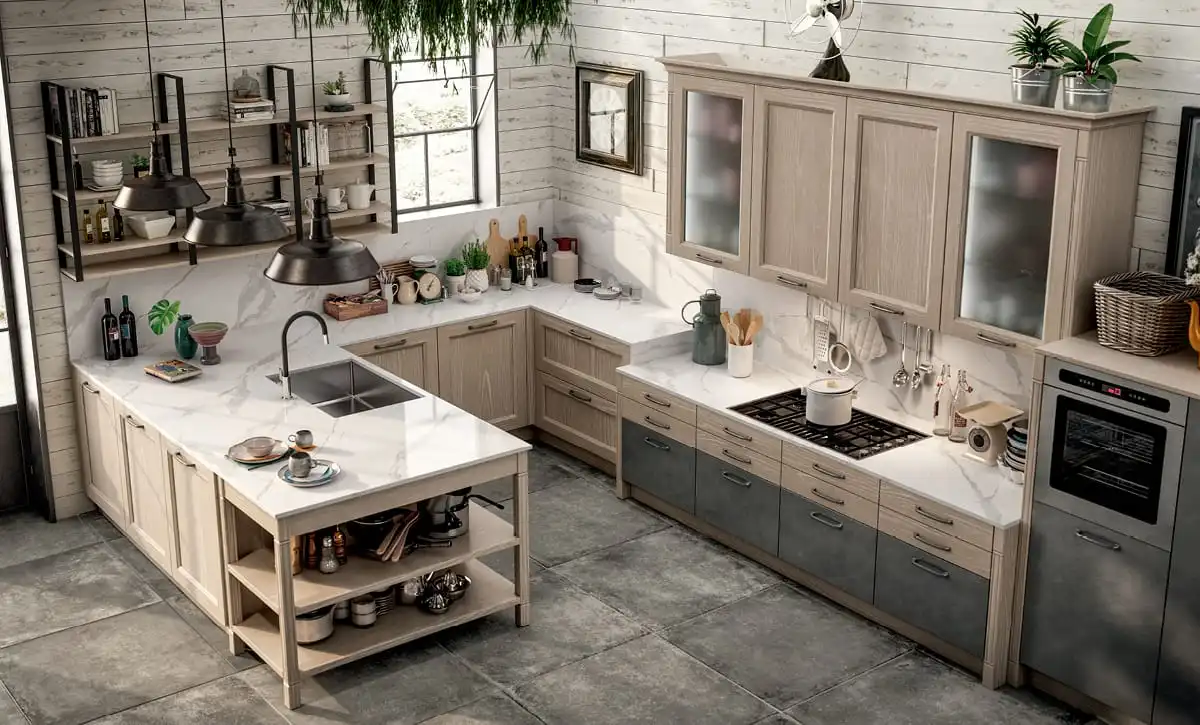
QUARTZ KITCHEN WORKTOPS: PROS
Resistant to scratches and knocks
As it is a highly flexible composite material, quartz is scratchproof and resistant to accidental knocks and blows, making it less subject to denting or chipping than materials such as granite, marble, ceramic or laminate.
Easy to clean and hygienic
The perfectly smooth, non-porous surface does not absorb liquids and grime, and it is easily cleaned with a mild detergent. Aggressive detergents with high pH must be avoided at all costs.
Antistatic
Quartz is an antistatic material, which means that its surface does not attract and withhold dust and dirt particles.
Vast choice of colours and finishes
According to its composition, a quartz slab for kitchen worktops can create any colour and effect, providing infinite opportunities for customisation and freedom in terms of design.
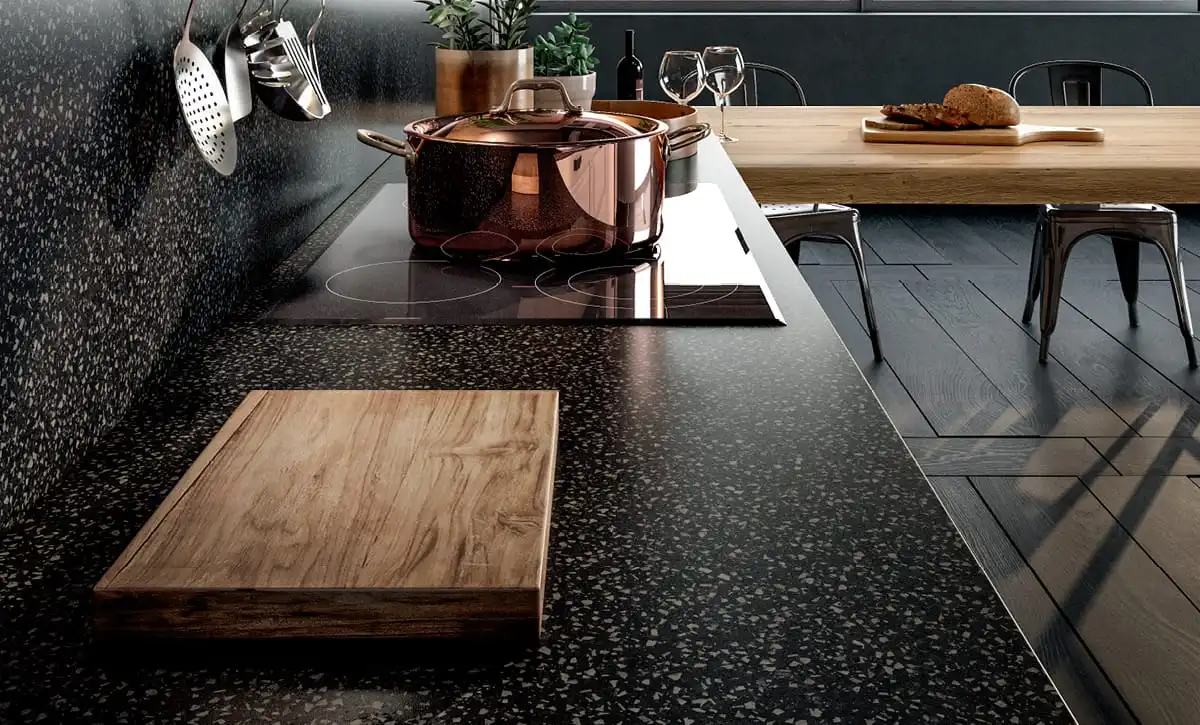
QUARTZ KITCHEN WORKTOPS: CONS
Sensitive to acids
Quartz kitchen worktops may be sensitive to acid products with high pH, including natural ones such as, for example, tomatoes, vinegar or lemon juice. If the top comes into contact with acid substances they must be removed as soon as possible so that they do not have time to penetrate and create an opaque stain or alter the colour. For the same reason, as mentioned above, detergents with high acid content are to be avoided.
Reduced resistance to thermal shock
A quartz worktop should be placed so that it does not come into contact with direct heat sources. In addition, care must be taken not to place hot pans directly on the surface; use a pan stand or at least a thick cloth to avoid causing heat marks.
Cost
Here we need to make some distinctions. Quartz, especially if it is good quality, may initially be costly, particularly compared to materials such laminate, glass or steel. On the other hand, it is more economical than marble and most natural stone.
If we consider it as a long-term investment, a quartz kitchen worktop will ensure great durability in terms of good looks and functionality, which can make its quality:price ratio advantageous in the long run.
